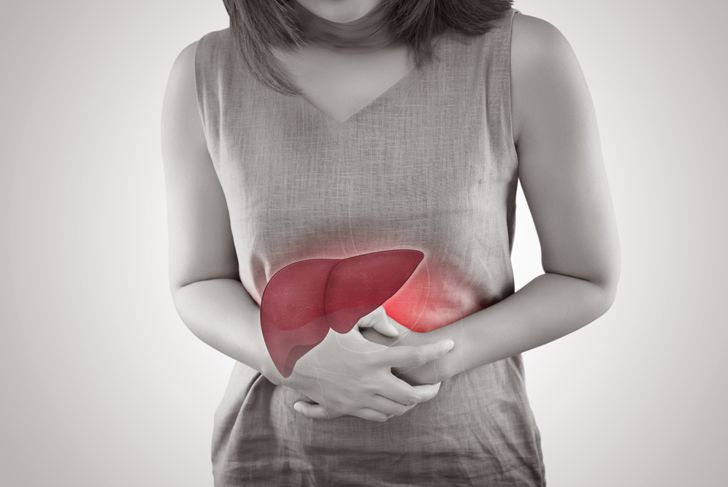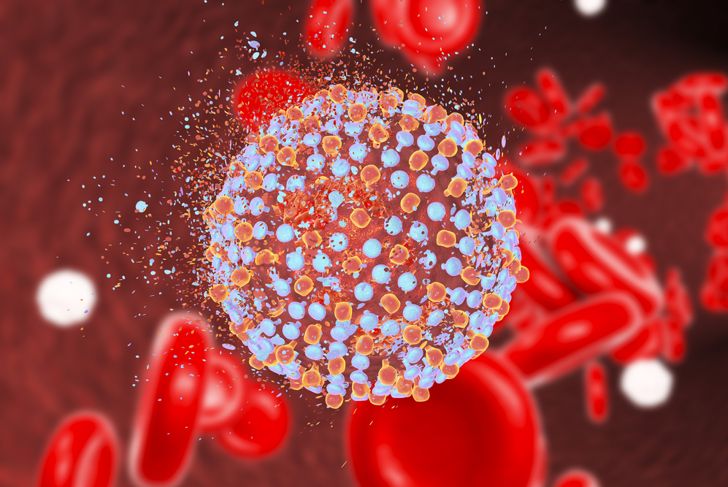Caused by a highly contagious virus, hepatitis A causes inflammation and impacts liver function. Many cases of hepatitis A are minor and do not require treatment, and people generally recover without lasting damage to the liver. However, in some cases this condition can be more severe and lasts a few months.
Common Symptoms of Hepatitis A
After the hepatitis A virus has been in the body for a few weeks, the infected individual will begin experiencing symptoms. Although not everyone develops them, common signs include flu-like symptoms: low-grade fever, loss of appetite, muscle aches, as well as sudden nausea and vomiting, fatigue, and abdominal pain in the location of the liver — beneath the lower ribs on the right side of the body.
More Symptoms
Jaundice, a yellowing of the skin and whites of the eyes occurs in 70 to 85% of the adults with this infection. Affected children and infants rarely get jaundice or other symptoms of hepatitis. Less common symptoms of hepatitis A include dark urine or clay-colored bowel movements, joint pain, and intense itching. These signs might indicate a more severe case of the infection and could last several months rather than the few weeks typical of milder symptoms and infections.
When to See a Doctor
A person experiencing multiple symptoms of hepatitis A that do not resolve in a few days should visit a doctor. Likewise, people who believe they may have been exposed to the virus should seek medical evaluation even if they have not had symptoms. Receiving the antibody immunoglobulin within two weeks of exposure may help prevent the development and spread of the infection, although this treatment is rare.
Hepatitis A and the Liver
Because the hepatitis A virus infects the liver cells, the organ becomes inflamed. Pain and swelling in the liver can lead to the common signs and symptoms of hepatitis A. Inflammation can also affect how the liver functions.
Causes of Hepatitis A
Contaminated water or food is the most common source of the hepatitis A virus. Eating raw shellfish that resided in this polluted water, or drinking from a contaminated stream can lead to infection. Hepatitis A can also be contracted by having sexual intercourse with someone with the virus or if an infected person prepares food for others. Even people not yet displaying signs or symptoms of the condition can transmit it.
Hepatitis A Risk Factors
A few factors can increase one’s chance of contracting hepatitis A. Travel to areas with poor sanitation or where hepatitis A is common makes contact with contaminated water, and therefore infection, more likely. Working or attending child care centers is another risk factor. People who are HIV positive or use intravenous drugs are also at higher risk of contracting the disease.
Diagnosis
A blood test can diagnose hepatitis A. A small blood sample is taken from a vein in the arm and sent to a lab for testing. Once a diagnosis is confirmed, a doctor will develop a treatment plan depending on the time frame and severity of the infection. Recovery can take up to six months.
Treatments for Hepatitis A
There is no cure for hepatitis A; infected people must simply give their bodies time to eradicate the virus. Treatment generally focuses on increasing the comfort of the individual as the infection runs its course. People with hepatitis A generally feel fatigued and unwell, so rest is essential. Likewise, it is important to control dehydration with fluid and electrolyte replacement. Medication for nausea is not recommended.
More Treatments
People with hepatitis A should avoid drinking alcohol because the already-infected liver will be less capable of efficiently processing the alcohol; this can result in further liver damage. Some medications can also worsen the infection, so any over-the-counter or prescription medications should only be taken with the approval of a doctor aware of one’s hepatitis A diagnosis.
Prevention
Regular hand-washing and other good hygiene practices are some of the best ways to prevent infection with hepatitis A. People who are at higher risk for any of the reasons outlined previously can receive the hepatitis A vaccine for further protection.

 Home
Home Health
Health Diet & Nutrition
Diet & Nutrition Living Well
Living Well More
More




















